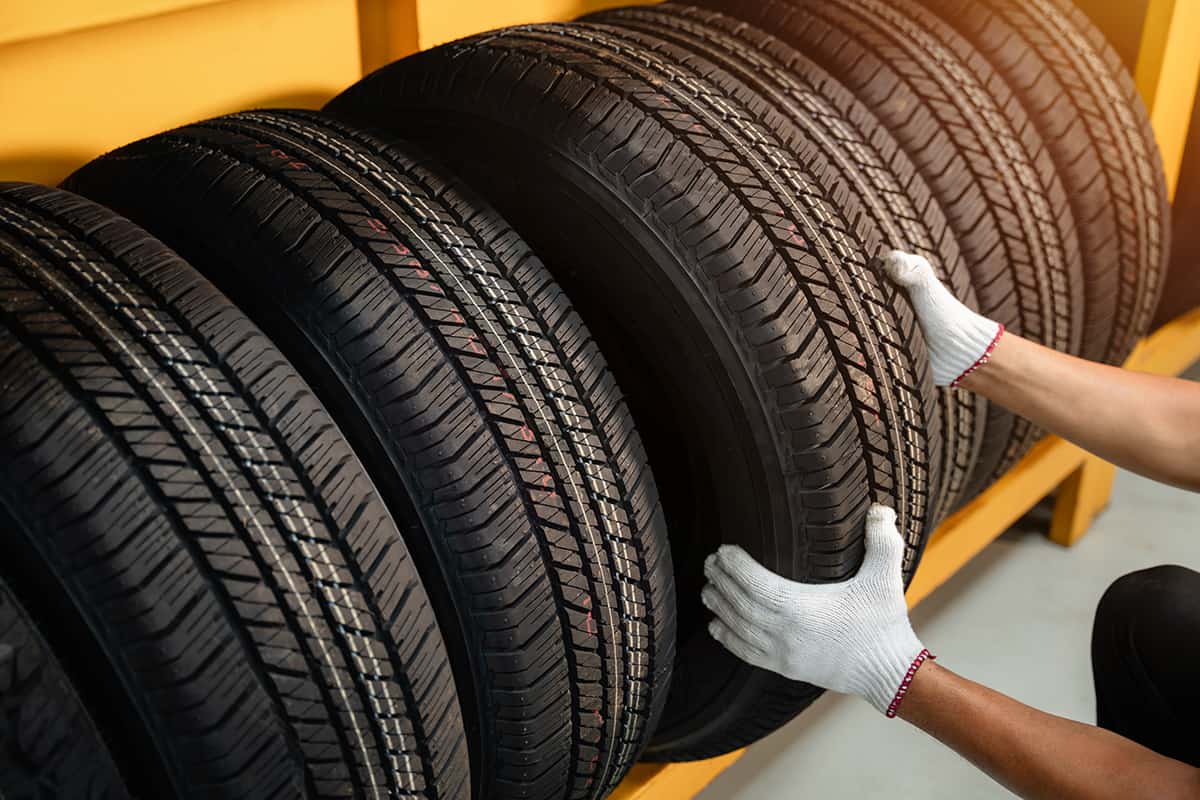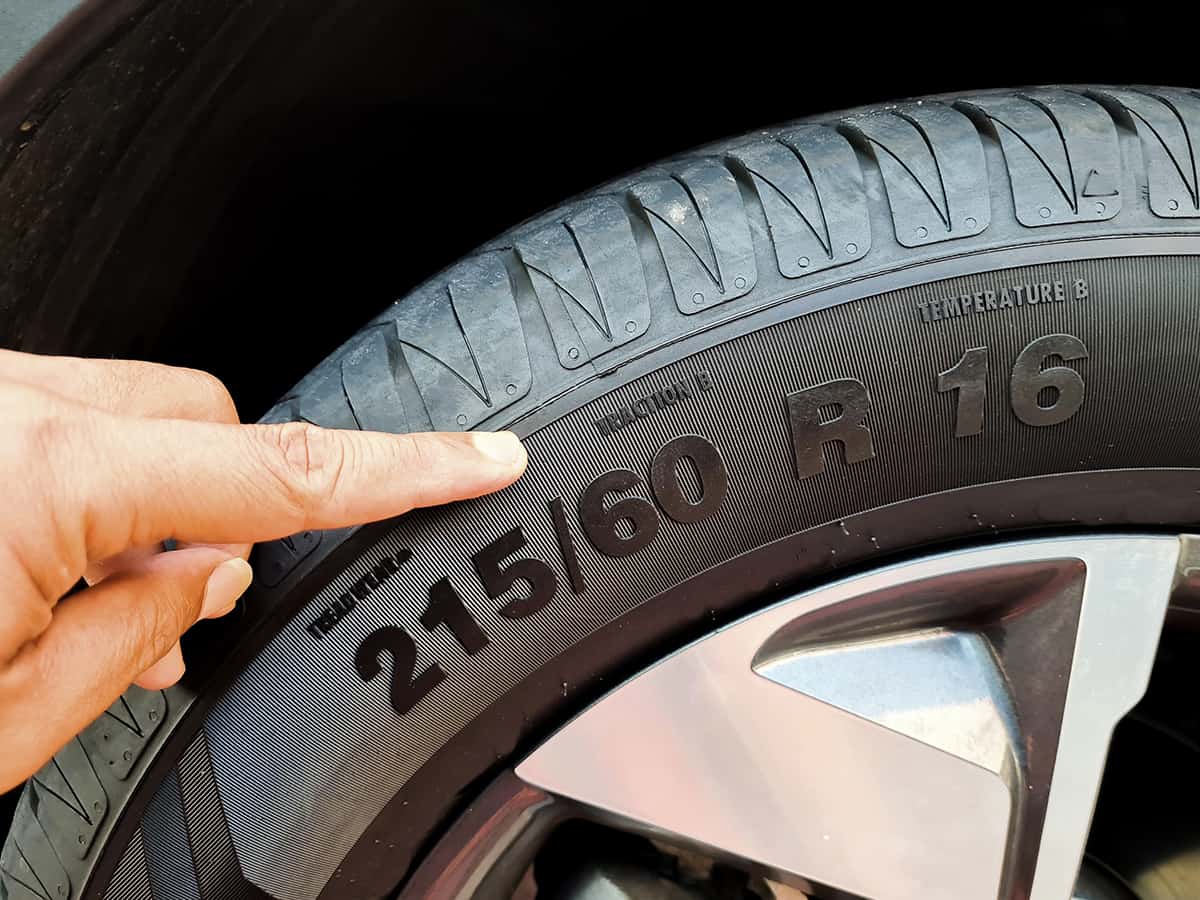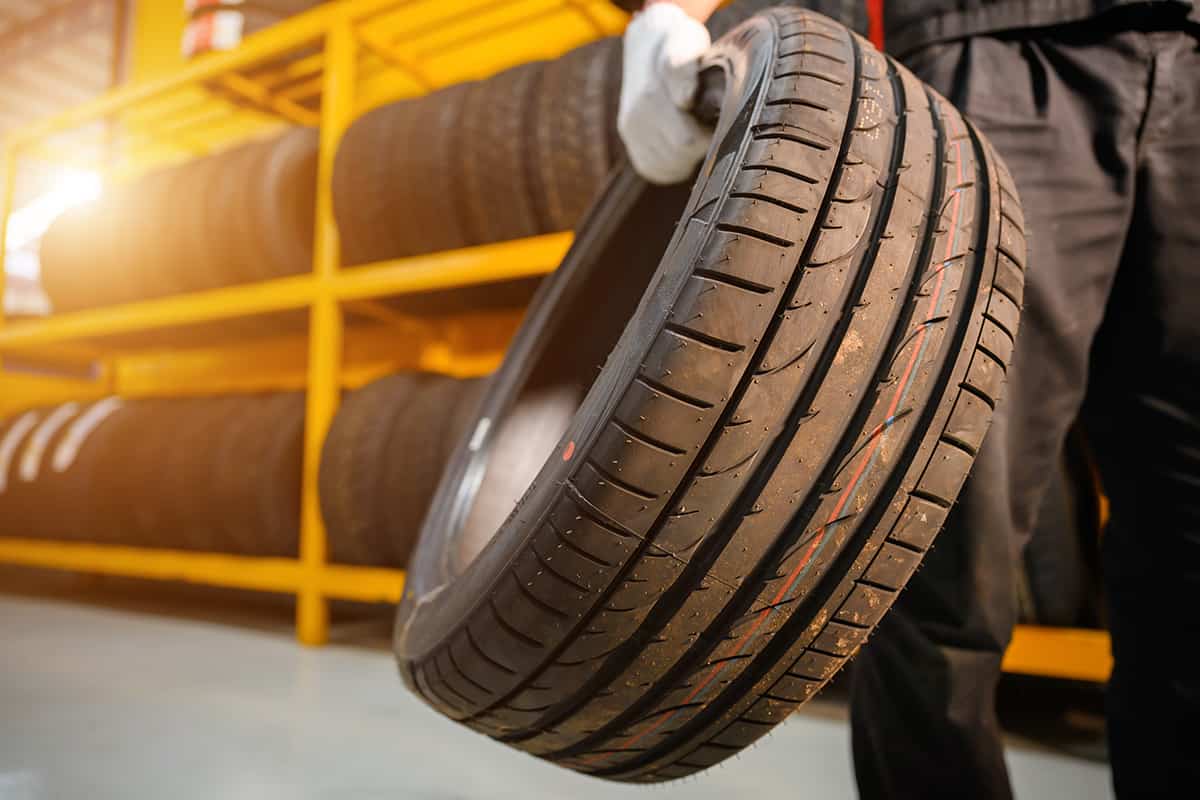Tires form the crucial link between your car and the road, a factor that significantly influences how your vehicle performs. As such, understanding the various aspects of your car’s tires, like their average weight, can equip you with the essential knowledge to make informed decisions regarding tire maintenance, replacement, and overall vehicle management.
Average car tires generally weigh between 20 to 33 pounds (9 to 15 kilograms), although this can vary based on the type of vehicle, tire size, and brand.
This guide goes into the significance of tire weight, from the basic principles that govern it, to its role in tire maintenance and replacement. It will also help you navigate the process of choosing the right tire weight for your car, providing comprehensive insights for every car owner.
The Basic Principles of Tire Weight

When we talk about the ‘weight’ of a tire, we refer to how heavy it is without air or rims. The weight of a tire can have significant impacts on your vehicle’s performance, from fuel efficiency to handling. In this section, we’ll take an in-depth look at the fundamentals that shape a tire’s weight.
What Contributes to the Weight of a Tire
Every tire is a complex structure made from various materials, each contributing to the overall weight. Here’s a basic breakdown:
- Rubber Compounds: They form the outer layer of the tire and contribute significantly to the tire weight. The type of rubber used can vary, affecting weight and durability.
- Steel Belts: Located beneath the outer rubber layer, they enhance the tire’s strength and puncture resistance. The number of steel belts and their thickness can influence the weight.
- Textile Layers: These are fabrics embedded in the rubber to provide additional strength and flexibility. Different types of fabrics like polyester, nylon, or rayon can be used.
- Bead: This is the part of the tire that comes into direct contact with the rim. It’s usually reinforced with steel wires, which add to the weight.
Interplay Between Tire Weight and Vehicle Performance
Tire weight plays a significant role in how your vehicle behaves on the road. Here are some key areas:
- Acceleration: Lighter tires can improve acceleration because less rotational mass needs to be moved.
- Fuel Efficiency: A lighter tire reduces the overall weight of the vehicle, potentially improving fuel efficiency. However, this also depends on driving conditions and driving style.
- Braking: A heavier tire might require more stopping distance because of its increased momentum. This can influence braking performance.
- Ride Comfort: Tire weight can impact the vehicle’s vibration levels. Heavier tires might absorb road imperfections better, providing a smoother ride.
- Handling: Lighter tires might offer quicker steering response, but heavier ones might provide better stability at high speeds.
Diving into Average Tire Weights
Knowing the average weight of car tires can provide valuable insights into vehicle performance and maintenance. However, the ‘average’ is a broad term as it can vary based on several factors. Let’s dive deeper and understand these variations.
Average Tire Weights for Different Types of Cars
Different car types require tires of varying sizes and strengths, which directly influences the tire weight.
- Sedans and Hatchbacks: For these types of vehicles, which include compact and midsize cars, the tire weights usually fall between 20 to 26 pounds (9 to 12 kilograms). They are designed to provide a balance of comfort, fuel efficiency, and performance.
- SUVs and Trucks: Given their larger size and load-carrying capacity, SUVs and trucks use heavier tires. The average weight ranges from 30 to 50 pounds (14 to 23 kilograms). These tires are robustly constructed to handle rugged conditions and heavy loads.
- Sports and Luxury Vehicles: These vehicles often use performance or high-performance tires that provide better traction and high-speed stability. Their average weight can range from 22 to 33 pounds (10 to 15 kilograms), depending on the size and design.
How Manufacturers Determine Tire Weight
Manufacturers decide on tire weight based on various factors, which include:
- Vehicle Specifications: Every vehicle comes with manufacturer-recommended tire specifications, which include tire size and weight. This is designed to ensure optimal performance and safety.
- Purpose of the Tire: The intended use of the tire also influences its weight. For instance, performance tires are designed for speed and handling, while all-terrain tires focus on durability and traction.
- Tire Technology: Advancements in tire technology also play a role. Some manufacturers use special materials or construction techniques to reduce tire weight while enhancing performance and durability.
The Role of Tire Weight in Tire Maintenance and Replacement
Knowing tire weights helps to optimize your vehicle’s performance and prolong the life of your tires. Let’s explore how tire weight plays into these areas.
Why Tire Weight Matters in Tire Balancing
Tire balancing is a critical maintenance procedure that ensures smooth and comfortable rides. It involves correcting weight imbalances around the tire and wheel assembly.
- Imbalance Issues: If a tire is heavier in one area, it can cause vibrations, uneven tire wear, and strain on your vehicle’s suspension. The weight discrepancy might be due to manufacturing variations or uneven tire wear.
- Balancing Process: During balancing, the mechanic mounts the tire on a balancing machine, which spins it to locate the heaviest part. They then attach small weights to the opposite side to even out the imbalance.
The Impact of Tire Wear and Tear on Tire Weight
Regular use of your vehicle leads to tire wear, which can gradually reduce the tire’s weight.
- Uneven Tire Wear: Aggressive driving, improper inflation, and misalignment can cause uneven wear. This not only affects tire weight but also leads to imbalances and vibrations.
- Wear Indicators: Tires have tread wear indicators embedded in them. When the tread wears down to the same level as these indicators, it’s time for a replacement.
Choosing the Right Tire Weight for Your Car

Choosing the right tire weight for your vehicle can be a crucial step in improving driving performance and safety. But how do you make the correct choice? Let’s unravel this, considering different driving conditions and vehicle requirements.
Staying Within Manufacturer’s Specifications
Always start with the Original Equipment Manufacturer’s (OEM) specifications. The manufacturer designs these parameters to ensure optimal performance and safety.
- Vehicle’s Placard: You can find your car’s tire size and load index on the vehicle’s placard, usually located on the driver’s door jamb. The tire weight should correspond to these specifications.
- Consult the Manual: Your vehicle’s manual will provide more detailed information about the right tire weight.
- Size Matters: Stick to the recommended tire size for your vehicle. While larger tires might provide more road grip, they also weigh more, which can affect fuel efficiency and vehicle handling.
Your Driving Needs and Conditions
You might consider switching to a different type of tire based on your driving conditions. For example, performance tires for more speed, all-terrain tires for off-roading, or eco-friendly tires for lower fuel consumption.
- City Driving: If most of your driving is in the city with regular traffic and lower speeds, you might opt for lighter tires. They can enhance fuel efficiency and acceleration.
- High-Speed Driving: For high-speed highway driving, a slightly heavier tire may provide better stability and handling.
- Off-Road or Rough Terrains: Driving in rugged conditions may necessitate heavier, more robust tires to withstand rough terrains and heavier loads.
Longevity and Fuel Efficiency
Tire weight can impact your tire’s lifespan and the vehicle’s fuel consumption.
- Tire Longevity: Heavier tires may offer a longer lifespan due to their robust construction. However, this also depends on the tire maintenance and driving conditions.
- Fuel Efficiency: Lighter tires may provide better fuel efficiency as they reduce the overall weight of the vehicle. However, they should still meet the vehicle’s recommended specifications.






